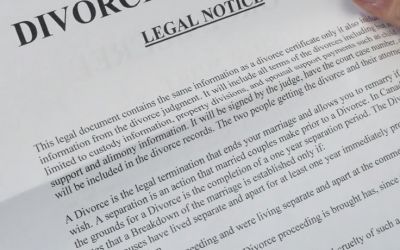
Abu Dhabi Civil Marriage Court 2024: Annulment Process for Filipinos
Table of Contents ▼
This regulation makes certain that all civil marriages are legally recognized to avoid complications related to polygamy, even though Shariah Law allows Muslim men to have up to four wives.
In this blog, we will discuss the marriage laws Abu Dhabi in detail, the differences between divorce and annulment, and what happens if you do not follow the procedure properly.
Divorce vs. Annulment
Article 19 of marriage laws Abu Dhabi outlines that divorce formally ends a marriage but still recognizes it as valid up to that point. The process involves filing a case in court, and sometimes, mediation or hearings.

On the other hand, annulment, also covered under Article 19, declares that a marriage was never valid from the start, treating it as if it never existed. Annulments can be more complicated and take longer to sort out.
For both divorce and annulment, you’ll need to provide documents, like a divorce certificate or proof for annulment. Once a divorce is finalized, you’re free to remarry legally.
However, with annulment, since the marriage is considered void, it’s important to handle everything properly to avoid issues with future marriages.
Civil Marriage Requirements
Article 4 of the marriage laws Abu Dhabi outlines the prerequisites for entering a civil marriage in Abu Dhabi:
- Minimum age: Both spouses must be 18 years old.
- Consent: Consent must be given in person before an official judge.
- Marital Status: Both parties must declare that they are not currently married. If either party has previous marriages, these must be legally dissolved through divorce or annulment in accordance with marriage laws Abu Dhabi.
Overview of Federal Law 28 of 2005
The marriage laws Abu Dhabi handle family matters, specifically for Muslims and those who choose to follow them. It covers important issues like marriage, divorce, child custody, and wills.
The goal of this law is to make sure that family matters, especially divorce, are managed in a standardized way so that both Muslims and anyone opting in follow the same legal procedures for their family-related cases.

Legal Consequences of Remarriage Without Annulment or Divorce in Abu Dhabi
Getting married again in Abu Dhabi without properly ending a previous marriage can lead to serious legal troubles. Here’s what could happen if someone doesn’t follow the rules:
Civil Penalties
If you remarry without annulling or divorcing your previous spouse, you could face heavy fines. This is to protect the integrity of marriage laws Abu Dhabi and prevent bigamy. It’s crucial to follow this rule.
Criminal Charges
If you enter a second marriage without a valid divorce, you could be charged with bigamy or polygamy. These are serious crimes in Abu Dhabi and could lead to imprisonment, showing how strictly the law is enforced.
Invalidity of the Second Marriage
Simply put, if you don’t legally under marriage laws Abu Dhabi end your first marriage, your second one won’t be recognized. This means your new marriage will be considered invalid, and you won’t have any legal rights from it.
Impact on Custody and Property Rights

If your second marriage is declared invalid, it could create complex issues with property and child custody. Since the marriage is treated as if it never happened, any disputes will be handled as if there was no marriage.
Social and Religious Consequences
The fallout isn’t just legal—there could be social and religious backlash too. This could strain relationships and lead to significant problems within the community.
Beware of Fake Agencies!
Be cautious about who you trust to remarry in Abu Dhabi. Some freelancers or agencies might promise you that you can marry without finalizing an annulment, but that’s not legally allowed and could lead to serious trouble.
Marriage laws Abu Dhabi are strict, and trying to bypass them can have severe consequences. Always consult with a legal expert to ensure everything is done correctly and your new marriage is legally recognized.
Hence, it’s a good idea to rely on an expert and well-informed agency like Easy Wedding to help you through the legal process of getting annulled or divorced.
How To Get An Annulment Without Legal Troubles?
To prevent legal problems when remarrying in Abu Dhabi, it is important to abide by the rules and follow these steps:
Get Your Legal Documents
The first step to avoid any trouble is to gather all the necessary documents that prove your previous marriages have been legally annulled or ended. This means submitting official divorce or annulment papers to the court.
Get Legal Advice
To navigate this process smoothly, it’s wise to consult a lawyer or an expert who can guide you through all the legal requirements. Experts from Easy Wedding can ensure everything is done properly, avoiding any legal issues.
Stay Transparent
Once you’re familiar with the marriage laws Abu Dhabi, especially Article 5, the application process will be clearer. Make sure all your paperwork is accurate and complete.
Simplify Your Divorce and Remarriage
Ready for a new beginning? Easy Wedding helps you to get divorced and enter into a new marriage following marriage laws Abu Dhabi.

Whether one closes the chapter of divorce or opens the new one of marriage, we have our team out to help you in every step. We will make sure that things go through very smoothly so that you move ahead with confidence.
Contact us, and let us help you begin this new chapter in ease!
FAQs
Can a tourist get married in Abu Dhabi?
Yes, tourists can marry in Abu Dhabi at the Civil Family Court, regardless of nationality or religion, except for UAE nationals who are Muslim.
How much is the civil marriage fee in Abu Dhabi?
The standard fee for a civil marriage is 300 AED. For expedited processing or a specific date, the express service costs 2,500 AED.
How to get an annulment in the UAE?
To start annulment proceedings in the Family Court following marriage laws Abu Dhabi , you need to file a petition, submit the original or a certified copy of the marriage certificate, and request based on an interim gender recognition certificate.



